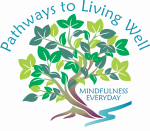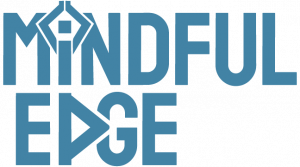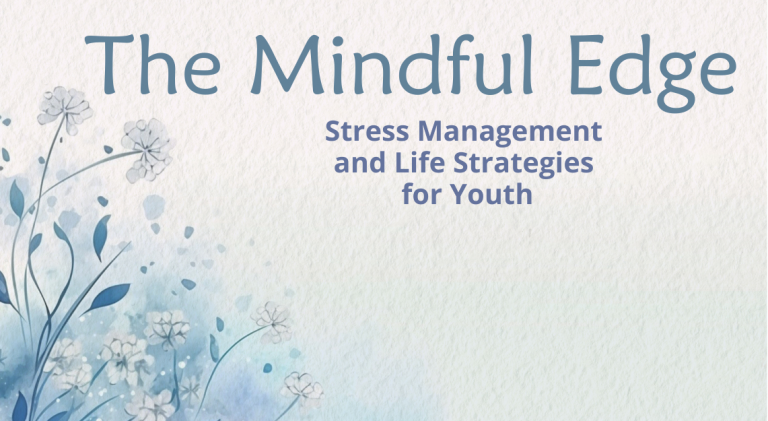
The Mindful Edge:
Stress Management & Life Strategies for Youth


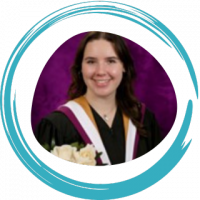



Mindful Edge Interactive
In June 2025, Mindfulness Everyday received a Canada Summer Jobs Grant to hire creative young people to create an online interactive website for youth supporting mental health and wellness with mindfulness-based stress management and life strategy techniques that were developed as part of The Mindful Edge program delivered as part of the high school curriculum for over a decade.
The grant that was received was for half the time and half the funds. It allowed for the initial concept creation of the website, initial coding, but not the final product. We are launching an appeal for further funding to complete this worthwhile endeavour. Please help our fundraising campaign so that we can complete the project. Donate through Canada Helps here:
https://www.canadahelps.org/en/charities/mindfulness-everyday/campaign/Mindful%20Edge%20Interactive/
The Team
Program Description
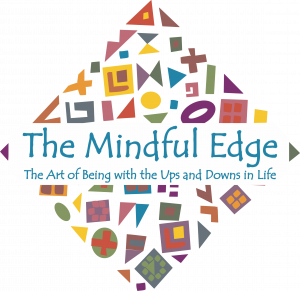
The Mindful Edge® is a specially developed program to provide Stress Reduction and Life Strategies for Youth. It is based on the principles of the MBSR Workshop program created by Jon Kabat-Zinn.
The Mindful Edge™ combines the practices of mindfulness with knowledge of neuroscience, positive psychology, movement and healthy living skills to create a program that benefits youth socially, emotionally, physically and academically.
Students actively participate in the process of unfolding a practical understanding of mindfulness and how it can benefit them in their lives.
Multi-session workshops for Students (grades 6-8 | 9-12) ages 13-19.
Find out more about bringing The Mindful Edge to your school.
Course Structure
Being a teen is stressful! The Program helps students enhance health & well-being by:
- Reducing stress
- Cultivating present-moment attention
- Increasing focus and attention skills
- Increasing positive coping skills
- Developing emotional regulation and balance strategies
- Teaching the science on how the brain affects behaviour and learning
- Manage transitions in life, i.e. to high school/post-secondary
- Developing communication skills to foster improved relationships
- Improving overall mental and physical health and well-being
The 3-unit program is composed of 1.5-hour themed sessions, delivered in small groups, in person or online.
The Overall Program Goal is Resilience – The Art of Being with the ups & downs in life.
12 Core Lessons
Physiology of stress and how mindfulness can ease and help manage students’ response to stress.
Intro to mindfulness and relevance for students, establishing personal connection – the buy-in.
Experience of mindful practices that use body and breath as an anchor to attention: body scan, circle breathing, mindful eating.
The neuroscience of attention and neuroplasticity.
Exploring thinking, including the impacts of perception, implicit bias, cognitive distortions. Cultivating mindful self-compassion as a means to manage negative self-talk.
What is Social and Emotional Intelligence? Exploring emotional literacy, moods, feelings and the continuum of emotions.
We can learn to manage strong emotions in a way that helps us identify our needs and get them met in situations, and does not escalate them.
Happiness is a state that can be cultivated through practicing gratitude, appreciation & kindness, drawing on the recent research on Positive Psychology.
Exploring mindful art-based activities.
Self-compassion is a skill that can be cultivated, exploring the three foundations of mindful self-compassion: mindfulness, self kindness and common humanity. How to be your own best friend.
Relationships and connection can be enhanced through practicing mindful speaking and listening. Principles of mindful communication include setting an intention, being fully present, remaining open and non-judgmental, and relating to others with compassion.
Investigating the aspects of mindfulness that support leadership: awareness, attention, intention and action.
Program Delivery
The 12-lesson program is delivered in 3 Units that are comprised of 4-lessons each with a specific theme and focus:
- The Essentials of Mindfulness: What is it, how to practice it, practical skills and strategies to manage stress, and why it is beneficial.
- Mindful Social and Emotional Learning: The lessons build on the framework of Social Emotional Learning (SEL), with an emphasis on mindful awareness as the foundation to support emotional regulation. The 5 core SEL competencies are Self-Awareness, Self-Management, Responsible Decision Making, Social Awareness, and Relationship skills.
- Mindful Leadership: training students to share their learnings with other students.
Options for the delivery of this 3-unit program are:
- Best: All 3 Units, the full 12-session program
- Better: Units 1 and 2, 9 sessions
- Basic: Unit 1, 5 sessions
The Mindful Edge Teachers
The Mindful Edge program is delivered either in-person or virtually, by qualified, experienced teachers, each with a strong background and practice in mindfulness.
Media
The Mindful Edge at R. H. King – In Their Voices
The Benefits of Mindfulness
The Mindful Edge Research
Action Research Fostering Positive Mental Health in Ontario Schools: Measuring the Effectiveness of The Mindful Edge® Program
The Mindful Edge program offers positive mental health promotion to students through long-term skill building. The skills developed throughout this course can help them manage stress in a healthy manner and better ready themselves for learning in an academic setting.
From 2011 to 2013, The Mindful Edge program has been facilitating an 8-week mindfulness training program for teens while collecting data in both the TDSB and YRDSB. A Canadian Vision has been assiting in the development and procurement of required measurement tools and completed all written reports. Together, the following research questions were investigated: Does the Mindful Edge program improve students’ abilities to recognize and identify symptoms of stress? If so, are they adopting more effective strategies when trying to reduce the unhealthy effects of stress?
If you wish more information on the reseach, please contact us.

